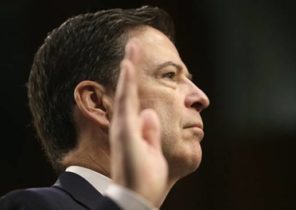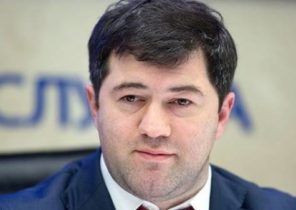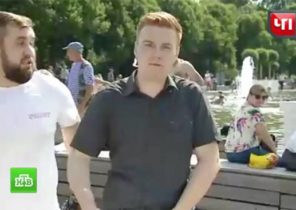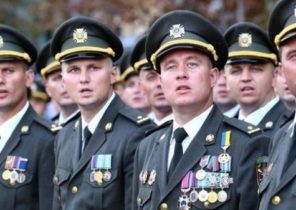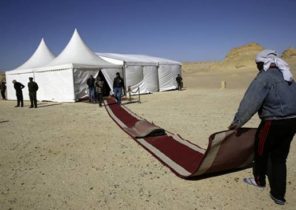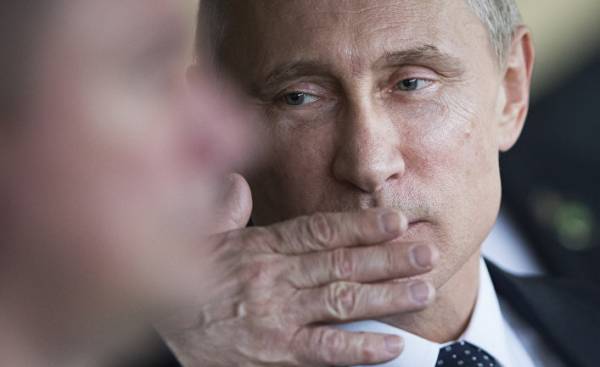
Russian leaders have long been accustomed to accept fear and terror for respect and admiration, and in this respect, in 2016, Putin outdid himself. This year he has to make more effort to keep up the pace, as he prepares, most likely, their last presidential elections in 2018.
Last year Putin’s audacity, combined with a little luck produced a positive result: victory in Syria, the successful destabilization of Ukraine, the growth of support for populists in the Western countries. Even the Russian economy showed some encouraging signs, namely the agricultural boom and the actual end of a period of negative growth (last year, Russia’s economy fell by only 0.2%). However, the path to greatness, who chose Putin, very hard: to hit the headlines is much easier than to turn them into tangible, long-term or even medium term benefits.
Russia’s attempts to cultivate the opposition centrist elite in Europe is likely to result in negative consequences. Experienced representatives of the Kremlin and the foreign Ministry never really hoped that Geert Wilders (Geert Wilders) will become the Prime Minister of the Netherlands and will veto the extension of sanctions, or that the leader of “National front” marine Le Pen (Marine Le Pen) will win the presidential election and eventual collapse of the European Union. The candidate of the French Republicans Francois Fillon (Francois Fillon) instilled a lot more hope since it could be an effective counterweight to Germany’s readiness to treat Russia as an enemy. However, Fillon tripped over one of the satirical newspaper, which found that he was paying his wife a salary of assistant parliamentarian. Putin has always underestimated the power of a free press, perhaps because in Russia it is rarely faced with it.
On the upcoming elections in Germany will not be a serious party and candidate, to which Putin would be eligible in the promotion of its objectives: the position of the social-Democrat Martin Schulz (Martin Schulz) is not more Pro-Kremlin than the position of Chancellor Angela Merkel. So here in Germany, the intervention of Russia remains invisible — and it is, most likely, and will remain so throughout the campaign season.
Win Donald trump in the United States initially looked like an incredible success for Putin, especially if you believed the stories about the close ties of the team trump with Russia. But even if trump had planned to make some proposals of Russia on normalization of relations, it prevented a large-scale anti-Russian campaign waged by the opponents of trump in the media and in political circles. And especially for those who still think that trump is a puppet of Russia: Thursday, March 16, the anniversary of the annexation of Crimea, the U.S. state Department, which is run by allegedly Pro-Russian former head of the oil company, Rex Tillerson (Rex Tillerson), issued a statement in which it strongly condemned the annexation of Crimea by Russia.
However, trump is a more preferable option for Putin compared to Clinton. Trump is not interested in the Affairs of Europe, and Merkel’s visit to Washington on Friday, March 17, is unlikely to help fix the rift in their relationship. Trump, of course, focused on the domestic Affairs of the United States, and he did not want to — or he’s just not ready to intervene in the Affairs of those regions and countries where a strong Russian interests, in particular in the case of Ukraine, the Balkans and Libya. In Syria’s interests trump limited to the fight against ISIS (a terrorist organization banned in Russia — approx. ed.), Russia is also interested in this.
When trump USA increased its presence in Syria. The recent airstrikes the U.S. helped al-Assad and Russia once again to pull out a PAL from the hands of ISIS. This brings Russia to its purpose, which is to strengthen the position of Assad in future negotiations, but it is not too perfect. Putin would prefer to resolve the Syrian crisis with Turkey that would allow them actually to divide spheres of influence between Moscow and Ankara. However, Turkish President Recep Tayyip Erdogan (Recep Tayyip Erdogan) has not been a reliable partner due to its desire to destroy the Kurdish separatists, and Russia was forced to accept the unspoken situational Alliance with the United States to control it. This complicates the final agreement for Putin. In any case, while this agreement is still very far away, despite all the diplomatic efforts of Russia and Turkey.
In the Balkans, in Libya and Russia voiced their interest, however she tried not to make any sudden moves in the spirit of the her the Crimean war: Russia is not confident of victory and defeat can lead to catastrophic consequences for the reputation of Putin, who has long sought to be seen as a powerful player in the international arena. Last year’s failed coup in Montenegro — perhaps the result of actions of the Russian nationalists whom Putin tolerates rather than supports — is a compelling reason to proceed with caution. Moscow has not yet decided whether she openly support the Libyan General Khalifa the Haftarot (Khalifa Haftar): it may be too weak, so to support it would require more resources than Putin can afford — both politically and militarily.
Ukraine, where the interests of Russia is much more pronounced than in the middle East, is continuing on its trajectory of self-destruction. Recently, President Petro Poroshenko decided to support the separatist blockade of the Eastern regions of Ukraine, which, as previously stated by the representatives of his government, can result in serious economic losses for the whole country. The reason for such a sharp change in the position of Poroshenko was the fact that the blockade has strongly supported the anti-war veterans — that is, the power which Poroshenko himself has issued out of control and that he is now afraid.
It is likely that, by strengthening its influence in Ukraine, Putin is not just makes it a lost cause for the West, but also encourages radical forms of nationalism, whose rise is much more dangerous for Russia than the incompetence and corruption of the regime Poroshenko. This year Ukraine is likely to further more keep away from Russia, and not let her in.
In economic terms, this year Russia is also not waiting for anything particularly good. The joint attempts of Russia, Saudi Arabia and other oil exporters to agree on oil prices by promising to significantly reduce production volumes in what have not resulted. If the current oil price — about $ 5 per barrel — will continue, the Russian budget will not fall apart, but no growth also must not count. This year, according to forecasts, GDP will grow 1% is slower growth than other emerging markets and even the European Union. This will not be enough in order to maintain geopolitical expansion over the existing relatively cheap projects.
Putin may try to make some rapid and unpredictable actions in the framework of the new campaign of shock and awe. However, he cannot count on the help of trusted allies or a strong economy, so his instincts are now likely to tell him to be careful. This leads to the fact that his name will become less likely to appear in newspaper headlines, which, he hoped, had strengthened his reputation.
